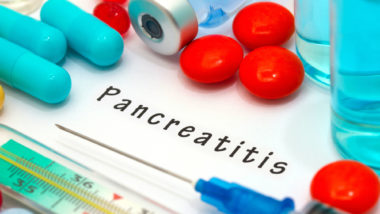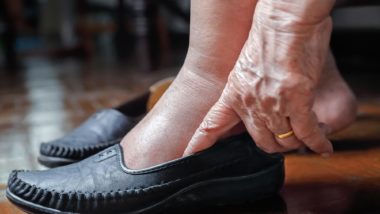Top Class Actions’s website and social media posts use affiliate links. If you make a purchase using such links, we may receive a commission, but it will not result in any additional charges to you. Please review our Affiliate Link Disclosure for more information.

This raises questions about the safety of such medications, and whether or not the benefits of these diabetic medications truly outweigh the risks.
SGLT2 inhibitors, also known as “gliflozin” drugs, were introduced to the market in early 2013. However, even before the first such medication was approved by the FDA, reputable physicians expressed concerns about whether or not their benefits truly outweigh the risks.
SGLT2 Inhibitors: What They Are, How They Work
Gliflozin drugs work by preventing the action of a specific protein, known as Sodium-Glucose Cotransporter 2 (SGLT2 for short). This protein plays a major role in the reabsorption of glucose in the kidneys. Gliflozins such as Farxiga work by inhibiting, or preventing SGLT2 from doing its job. As a result, excess glucose, or blood sugar, is excreted through the urine.
When the first drug of this class, Invokana (canagliflozin) was introduced in January of 2013, it was hailed as a “miracle drug.” Nonetheless, prominent physicians had serious concerns over cardiovascular safety and questioned whether or not it had been adequately tested. Despite these concerns, the FDA granted approval on the condition that postmarketing studies be carried out.
Farxiga and Jardiance (empagliflozin) were approved the following year. Since then, drugs of this class have been associated with diabetic ketoacidosis (dangerous reductions in blood pH levels), lower limb amputations and infections of the urogenital tract.
Farxiga and Fournier Gangrene
Fournier Gangrene
is a variety of “necrotizing fasciitis,” or flesh eating disease caused by different species of bacteria. One of the risk factors is uncontrolled diabetes. In 2006, a study carried out at Istanbul University in Turkey found that nearly half of patients diagnosed with Fournier gangrene had elevated blood sugar levels. The disease most often affects the genitalia or the perineum. The overwhelming majority of victims are older males with comorbidities that include alcoholism and immune disorders.
In September 2018, the FDA issued a warning after having received 12 reports of Fournier gangrene cases among patients who had been taking Farxiga, Invokana, Jardiance, and Steglatro (ertugliflozin). Although this condition rarely affects women, nearly half of the victims were female.
Affected patients were between the ages of 38 and 78. The disease had developed within as little as a week after starting a gliflozin drug — a relatively short time compared to other cases in which the disease appeared after about two years. In most cases, the patients were withdrawn from the medication.
How Does it Happen?
The mechanism by which Farxiga and other SGTL2 inhibitors cause Fournier gangrene is directly linked to how these medications work. Eliminating excess blood sugar through the urine affects tissues of the urogenital area, literally making it “sweeter” and thus more attractive to bacteria. In retrospect, it appears that if the drug manufacturers did not know that bacterial infections would be a result, an argument could be made that they should have.
It bears mentioning that Fournier gangrene, while extremely serious, is also very rare, affecting one in 62,500 males annually.
Join a Free Diabetes Medications & Flesh-Eating Infection Lawsuit Investigation
The type-2 diabetes medications linked to the flesh-eating infection include:
- Invokana
- Invokamet/Invokamet XR
- Farxiga
- Xigduo XR
- Qtern
- Jardiance
- Glyxambi
- Synjardy/Synjardy XR
- Steglato
- Segluromet
- Steglujan
If you or a loved one took one of the type-2 diabetes medications listed above and suffered from a flesh-eating genital infection, you may qualify to join this diabetes medication lawsuit investigation. Fill out the FREE form on this page for more information.
ATTORNEY ADVERTISING
Top Class Actions is a Proud Member of the American Bar Association
LEGAL INFORMATION IS NOT LEGAL ADVICE
Top Class Actions Legal Statement
©2008 – 2024 Top Class Actions® LLC
Various Trademarks held by their respective owners
This website is not intended for viewing or usage by European Union citizens.
Get Help – It’s Free
Join a Free Diabetes Medications & Flesh-Eating Infection Lawsuit Investigation
If you qualify, an attorney will contact you to discuss the details of your potential case at no charge to you.
PLEASE NOTE: If you want to participate in this investigation, it is imperative that you reply to the law firm if they call or email you. Failing to do so may result in you not getting signed up as a client or getting you dropped as a client.
E-mail any problems with this form to:
Questions@TopClassActions.com.
Oops! We could not locate your form.












